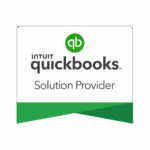Is your bookkeeping a chaotic mess? Are you drowning in receipts, invoices, and overdue reports? If so, you’re not alone. Catch up bookkeeping is a common struggle for many businesses, especially those experiencing rapid growth or neglecting their financial records for too long.
While the thought of tackling a mountain of paperwork can be daunting, getting your books back in order is crucial for sound financial management and making informed business decisions. However, the question arises: should you embark on the catch up journey yourself or entrust the task to a professional?
Here’s a breakdown of the pros and cons of each approach to help you choose the right option for your business:
DIY Catch Up Bookkeeping:
Pros:
- Cost-effective: This is the most affordable option, especially if you’re comfortable using basic accounting software or spreadsheets.
- Control and flexibility: You have complete control over your financial data and can work at your own pace.
- Improved understanding of your finances: By going through your records yourself, you can gain a deeper understanding of your financial health and identify areas for improvement.
Cons:
- Time-consuming: Catching up on bookkeeping can be very time-consuming, especially if you have a backlog.
- Risk of errors: If you’re not a trained bookkeeper, you’re more likely to make mistakes that could lead to financial problems.
- Stressful: The pressure of getting your books in order can be overwhelming and stressful.
Outsourced Catch Up Bookkeeping:
Pros:
- Expert help: You can leverage the expertise of a trained professional to ensure your books are accurate and up-to-date.
- Time-saving: Outsourcing frees your time to focus on other essential business tasks.
- Reduced stress: You can offload the burden of catch up bookkeeping and gain peace of mind knowing your finances are in good hands.
Cons:
- Costly: Hiring a bookkeeper can be expensive, especially for larger businesses or those with complex financial needs.
- Loss of control: You won’t have as much control over your financial data, and you’ll need to trust your bookkeeper to be accurate and reliable.
- Finding the right fit: Choosing a qualified and trustworthy bookkeeper can be a challenge.
Choosing the Right Option:
The best option for you depends on your specific circumstances, including:
- The size and complexity of your business: Larger businesses with more transactions will likely benefit more from outsourcing.
- Your budget: DIY bookkeeping might be a better option if you have limited financial resources.
- Your time constraints: Outsourcing can free up valuable hours if you’re short on time.
- Your comfort level with accounting: If you’re uncomfortable with numbers, it’s best to leave it to the professionals.
Tips for Successful Catch Up Bookkeeping:
- Set realistic goals: Don’t try to do everything at once. Start by setting small, achievable goals and gradually work your way through the backlog.
- Prioritize tasks: Focus on the most important tasks, such as reconciling bank statements and recording outstanding invoices.
- Use technology: Utilize accounting software and online tools to automate tasks and streamline the process.
- Seek help: If you’re unsure about anything, don’t hesitate to consult with a professional bookkeeper or accountant.
Remember, catching up on your bookkeeping is an investment in your business. You can gain valuable insights into your financial health, make better business decisions, and ultimately achieve greater success.
Additional Resources:
- 5 Common Mistakes to Avoid When Catching Up on Bookkeeping
- Tax Implications of Catch Up Bookkeeping
- Preparing for Your Catch Up Bookkeeping Project: A Checklist
- Motivational Tips for Staying On Track with Your Bookkeeping
- The Future of Catch Up Bookkeeping: Emerging Trends and Solutions







